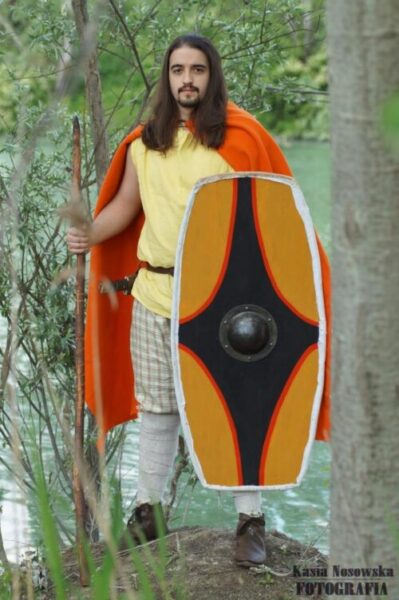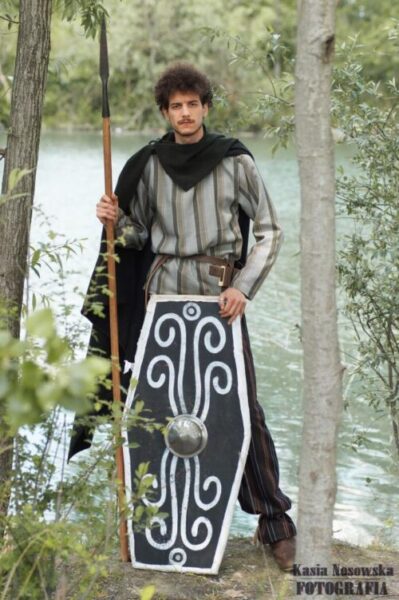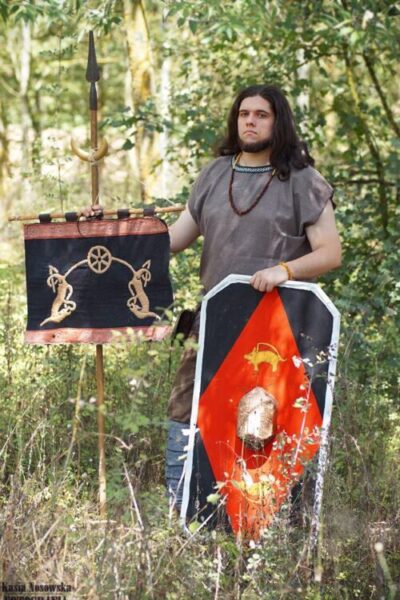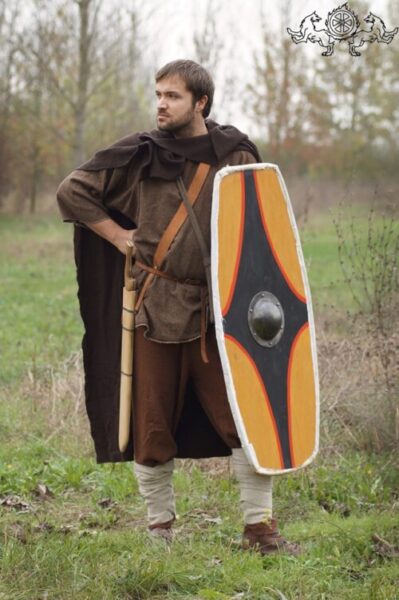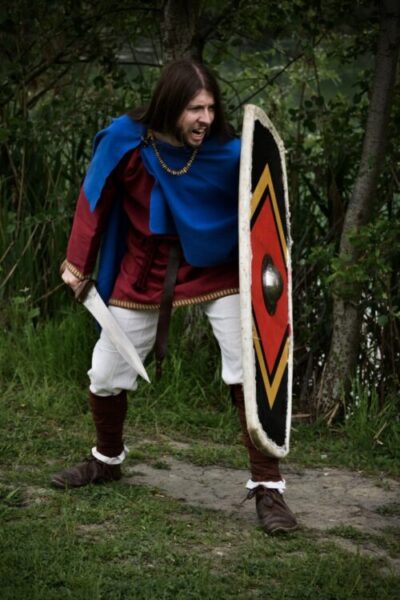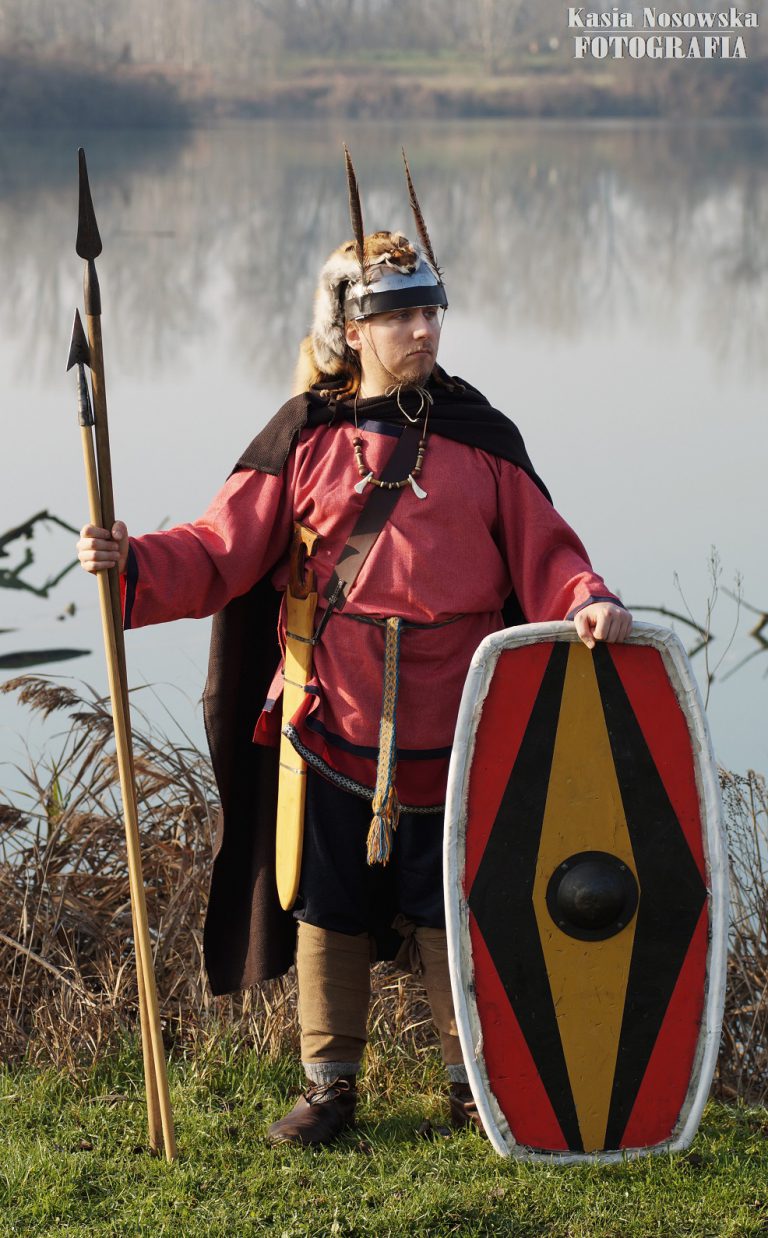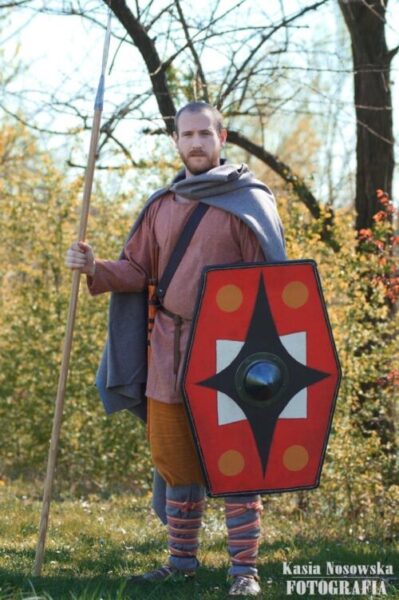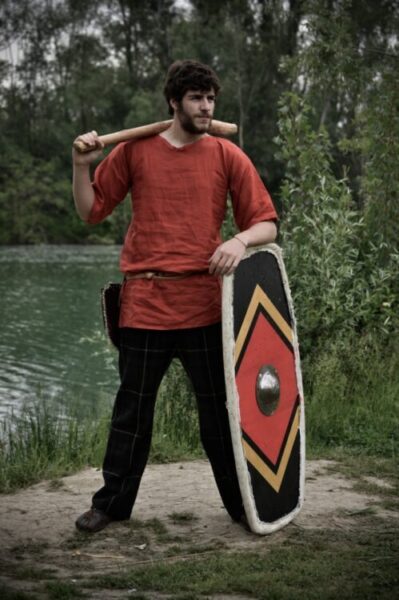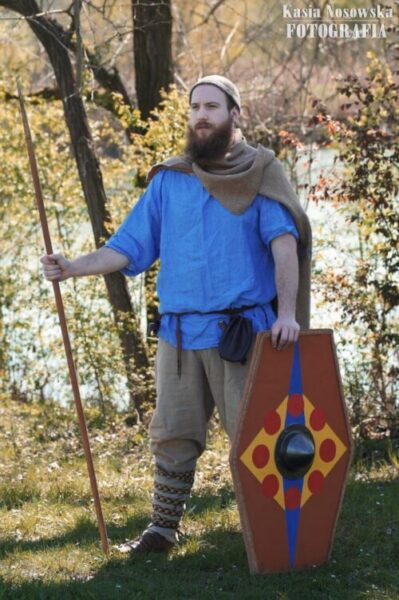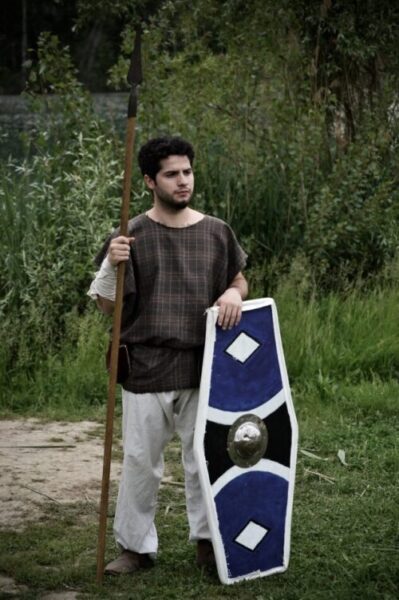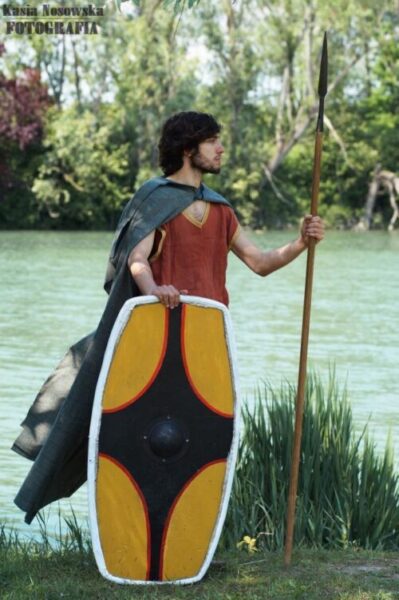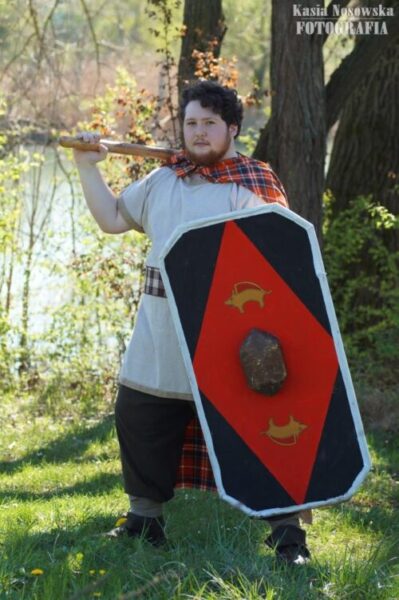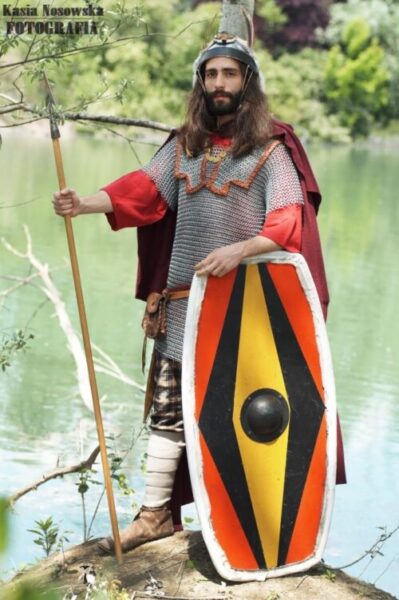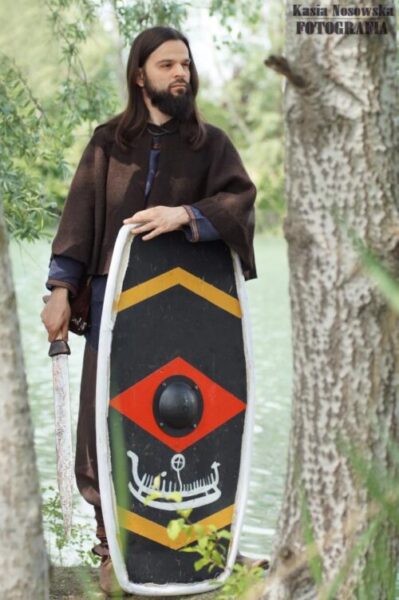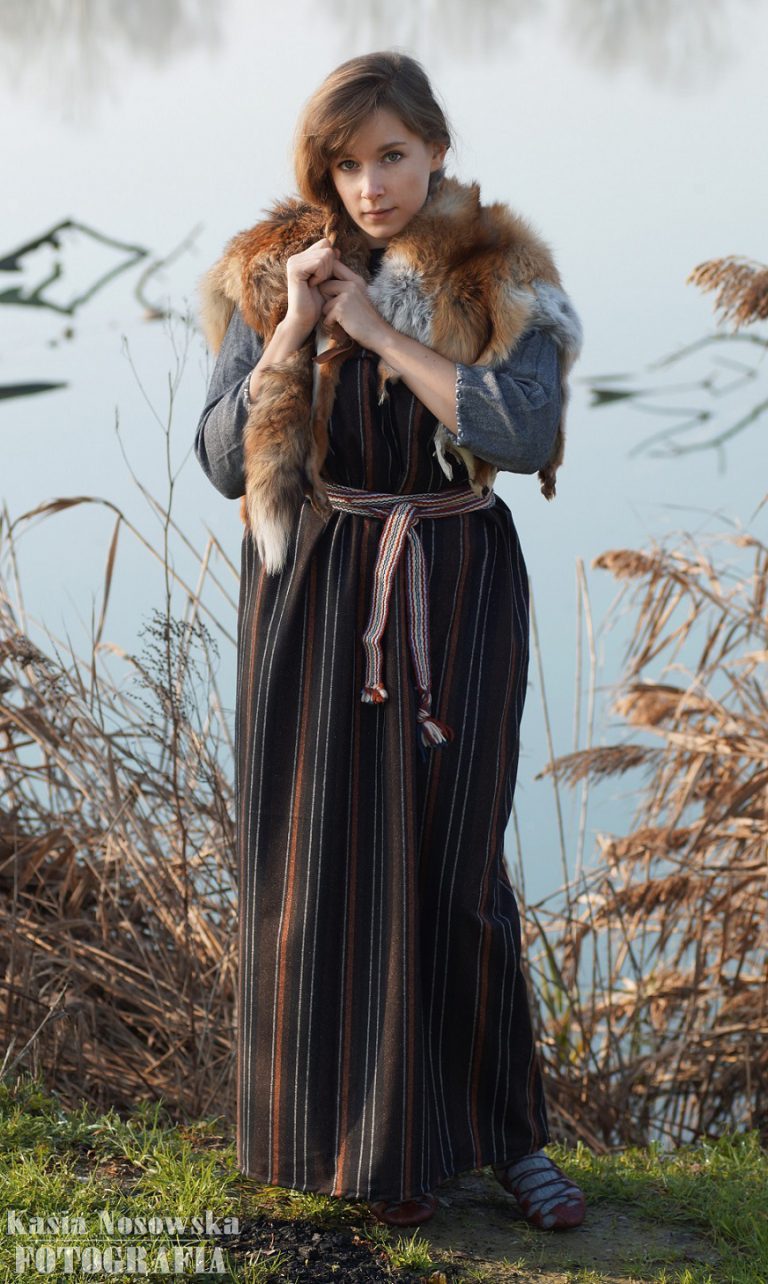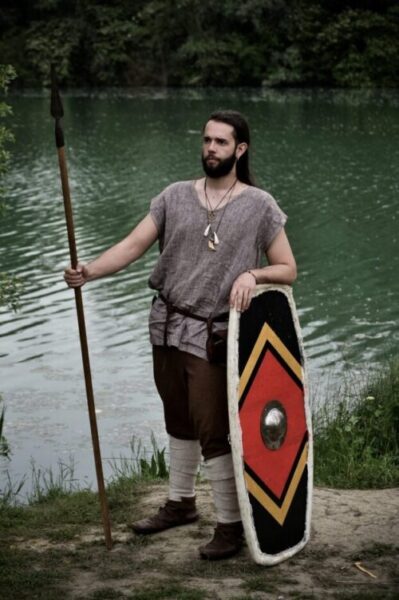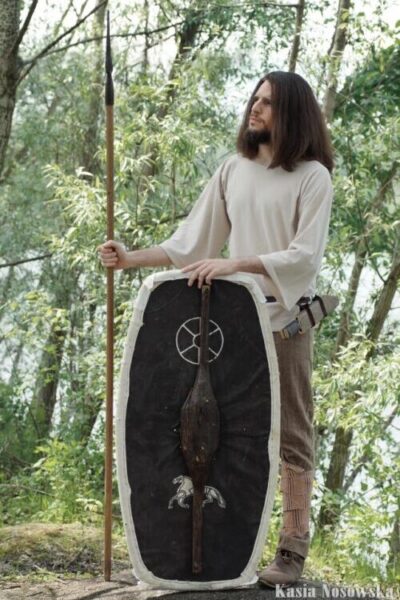Sippe Ulfson presents a historical and cultural representation of the Germanic tribes, settled from the I Century BC to the II century AD near the Reno, like Catti, Suebi and Harii.
Sources and historical context
Germans came from the South of Scandinavia and the Baltic shores and during the Roman Era were settled est of Reno and north of Danube.
Those tribes began moving south, leaving their home between 500 and 300 BC, due to climatic changing, overpopulation and famines. When they came in the land of today Germany, they knocked against Gauls, who had the fame of European “terrors” and Germans forced them to move west of the Reno.
The first German tribes we know of were Cimbri and Teuton’s tribes, who, in the II century BC, were defeated by Gaio Mario after having sowed terror in Europe.
Moreover, when Cesar was conquering Gauls’ territory, he fought against Ariovisto and his Suebian warriors.
The Roman Empire attempted to conquer Germany ended after Varus’ defeat in Teutoburg forest, when, in 9 AD, three Roman legions were destroyed by Arminio and his Cherusci warriors and other allied tribes.
When they noticed the decline of the Roman Empire, Germanic tribes started to press the Empire’s borders:
- During the IV century AD Goths defeated the Roman legions in Adrianopoli.
- During the V century AD Alarico’s Visigoths and Genserico’s Vandals sacked Rome.
Finally, in 476 DC, Odoacre, guiding Eruls, unthroned Romolo Augustolo, the last of the Roman Emperors. Afterwards, in the VI century AD, first Ostrogoths and then Langbards conquered the Italian peninsula.
Tacitus, Germania
Caius Julius Cesar, De Bello Gallico
Wikipedia
German tribes did not regard themselves as a unique population, in fact in their languages there were not a word to define themselves outwards their tribes. The name “German” came from the Celtic language and they used it to define a Germanic people they came in contact to. The name of a tribe became the name of a people.
Even thought Germans were highly influenced bay Celtic culture, they remains a primitive and backward population, in fact their Iron Age began in the II century AD, a lot of centuries after the other European populations.
Germans lived in patriarchal familiar groups called “Sippe”, gathered in a larger tribal entity called “Gau”.
Even thought the presence of a civilian chief (Kuningaz), Gau was governed by the Thing, a meeting of all chieftains who decided laws, elected chiefs and other decisions regarding all the Gau.
The territory was not useful for agriculture, so the only means of subsistence were farming, hunting and sacking.
So Germans were a technological backward population, but they were savage and brutal and they gave a lot of problem to European population, above all to Romans.

